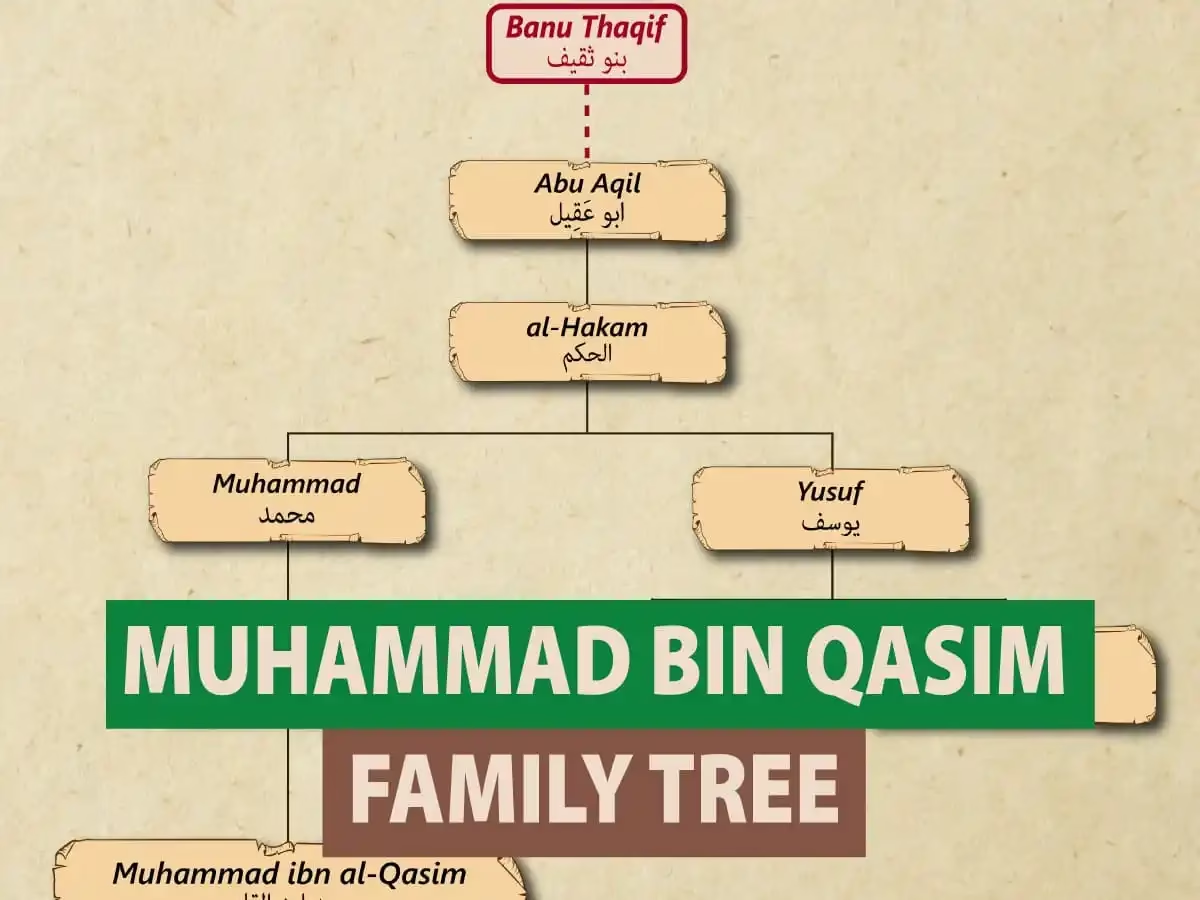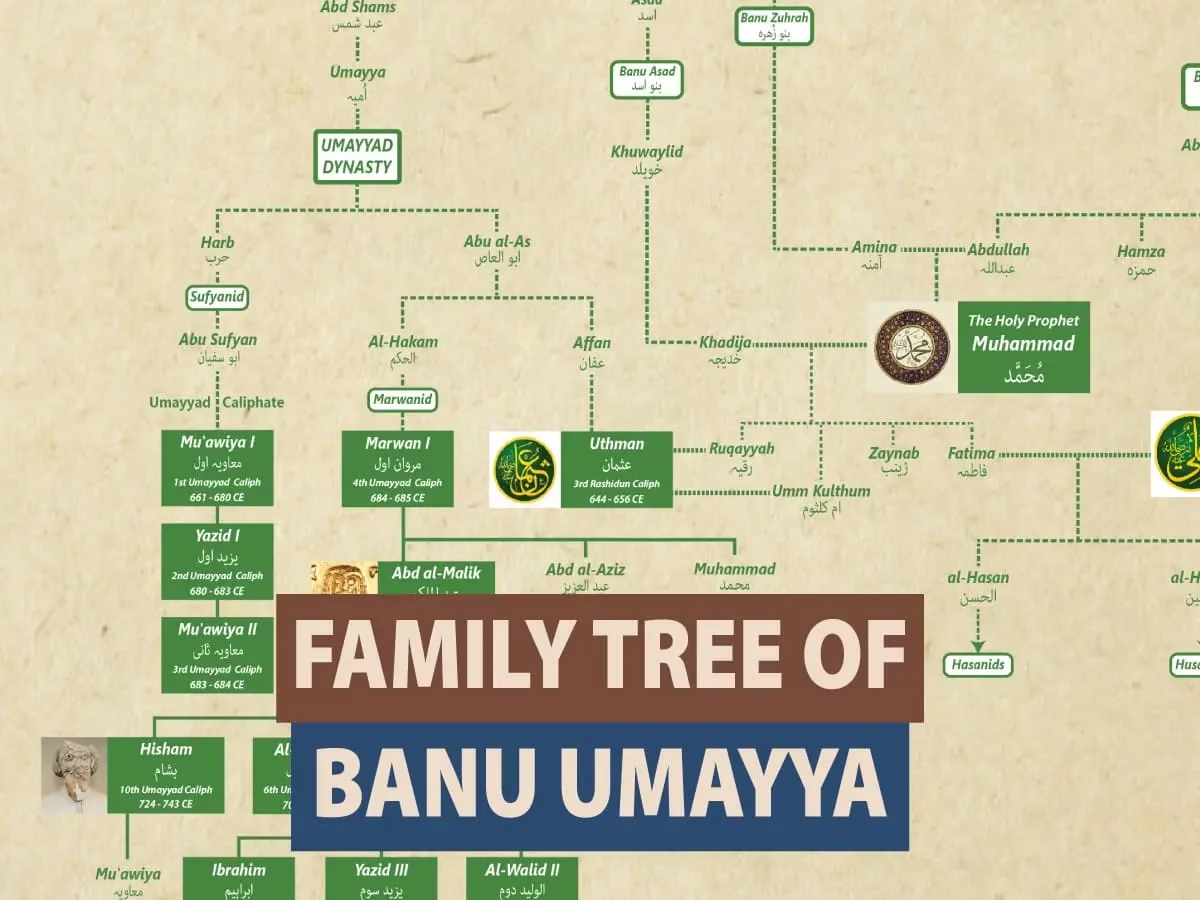Early Life
Alp Arslan was born in 1029 in the Khwarezm region, part of present-day Iran. His name, “Alp Arslan,” means “Heroic Lion,” a reflection of the strong warrior ethos that defined his character. He was the son of Chaghri Beg, an early leader of the Seljuk Turks who helped establish their rule in the Islamic world. Originally from Central Asia, the Seljuks had migrated into Persia and nearby lands, gaining power and influence.
From a young age, Alp Arslan was trained in military strategy, leadership, and Islamic teachings. He learned valuable lessons from his father and uncle, Sultan Tughril Beg, the founder of the Seljuk Empire. Sultan Tughril had strengthened Seljuk control in Persia and Baghdad, winning the support of the Abbasid Caliphate.
After his father’s death, Alp Arslan became the governor of Khorasan, an important region in the Seljuk Empire. This role helped him build a strong military reputation and earn the trust of his soldiers and allies. However, his rise to power was not easy, as he had to face internal conflicts and external threats that challenged the stability of the growing Seljuk Empire.

See Also: Seljuk Dynasty Family Tree: Great Seljuk Empire
The Path to the Throne
When Tughril Beg died in 1063, the Seljuk Empire faced a leadership crisis. Tughril had chosen his nephew Suleiman as his successor, but Alp Arslan, with the support of powerful military leaders, challenged this decision. After a brief struggle, Alp Arslan emerged victorious and became the second sultan of the Great Seljuk Empire.
His rise to power was marked by smart alliances and careful planning. One of his best decisions was appointing Nizam al-Mulk as his chief minister. Nizam al-Mulk was a brilliant leader who introduced important reforms that helped strengthen the empire. Together, they created a stable and prosperous rule, setting the stage for future expansion and success.
Military Campaigns: Expanding the Empire
As sultan, Alp Arslan focused on consolidating Seljuk control over Persia, Central Asia, and the eastern Islamic world. His military campaigns were characterized by tactical brilliance, swift maneuvers, and strategic alliances.
One of his early successes was the conquest of territories in Transoxiana, where he subdued local rulers and extended Seljuk influence. His campaigns in the east also secured the empire’s borders against the threat of rival Turkic tribes and the Ghaznavids.
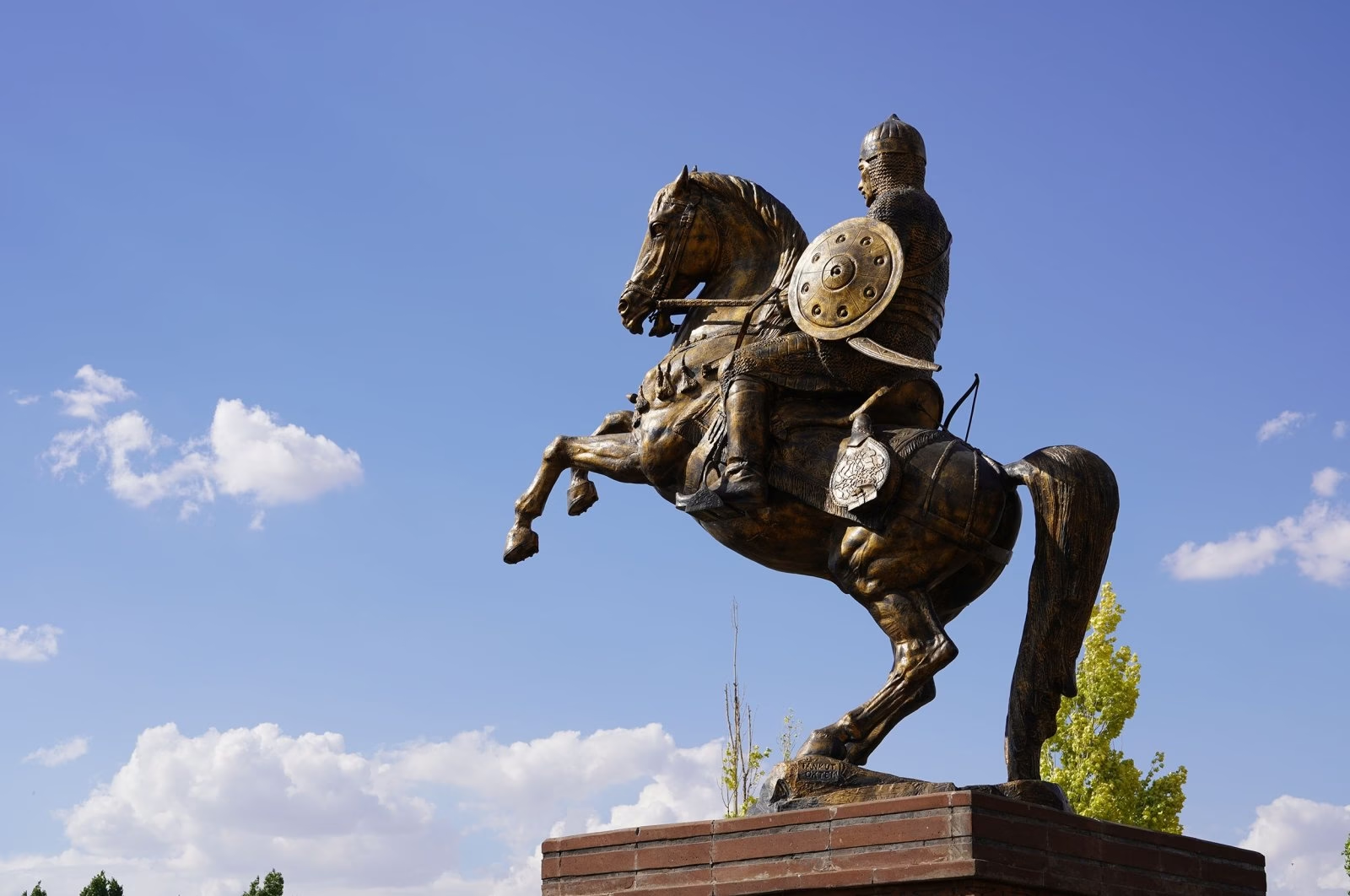
However, it was in the west, against the Byzantine Empire, that Alp Arslan would achieve his most enduring legacy. The Byzantine frontier had long been a contested zone between Christian and Muslim powers. Under Alp Arslan’s leadership, the Seljuk Turks began to make significant inroads into Anatolia, posing a direct challenge to Byzantine authority.
The Battle of Manzikert
In 1071, one of the most important battles of the Middle Ages took place: the Battle of Manzikert. This confrontation between Alp Arslan’s Seljuk forces and the Byzantine army under Emperor Romanos IV Diogenes marked a turning point not only for the Seljuk Empire but also for the future of Anatolia.
The Byzantines wanted to take back land lost to the Seljuks, so Emperor Romanos IV led a large army east to fight them. Even though Alp Arslan had fewer soldiers, he used smart battle tactics, including fake retreats and sudden attacks, to weaken the Byzantine forces.
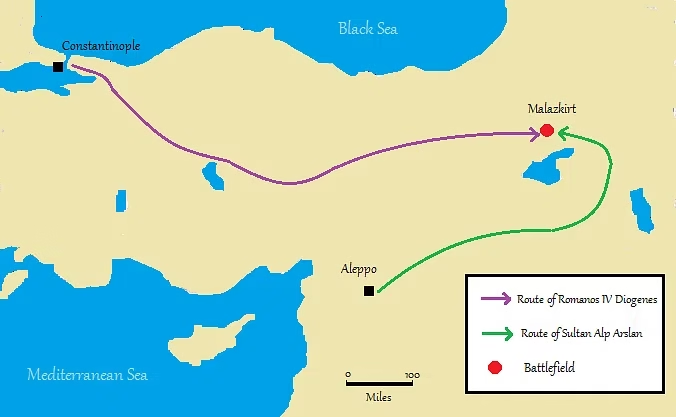
On August 26, 1071, near the town of Manzikert (modern-day Malazgirt in Turkey), the two armies clashed. The Seljuks won a decisive victory, and Emperor Romanos IV was captured. However, Alp Arslan treated him with respect and released him under fair conditions.
Alp Arslan: What would you do if I was brought before you as a prisoner?
Romanos: Perhaps I’d kill you, or exhibit you in the streets of Constantinople.
Alp Arslan: My punishment is far heavier. I forgive you and set you free.
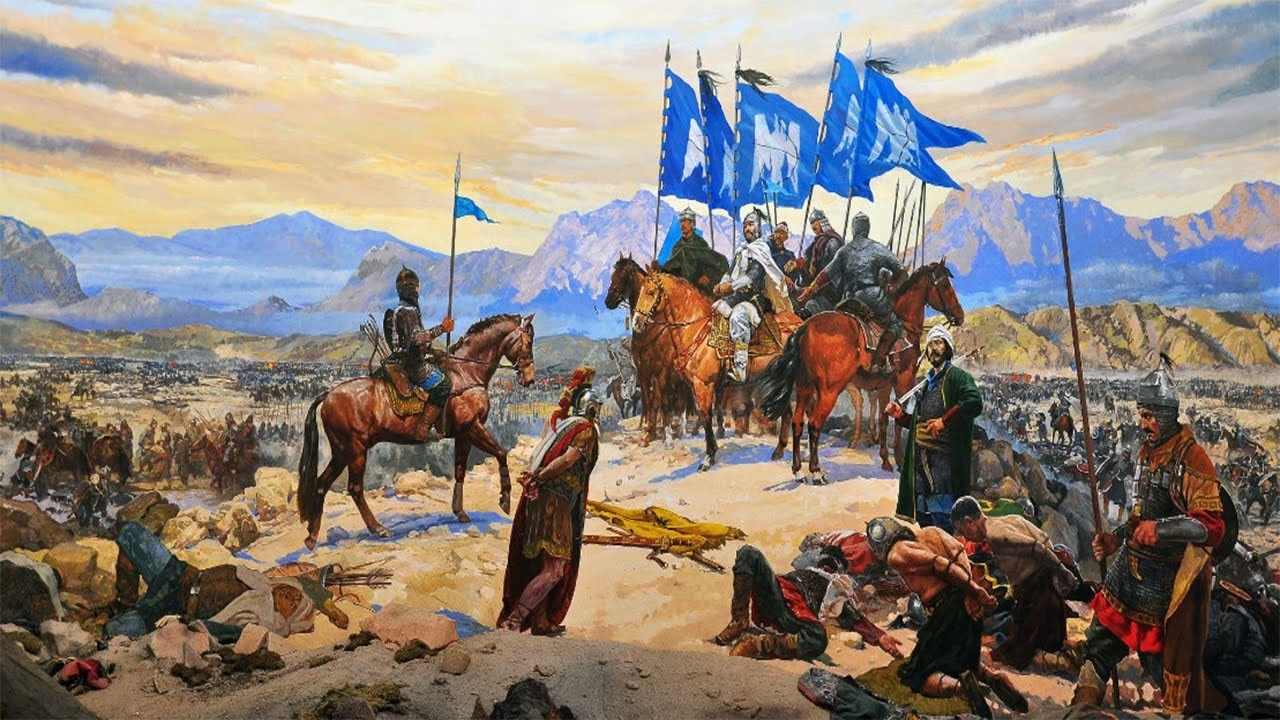
The aftermath of the Battle of Manzikert was transformative. The Byzantine Empire was significantly weakened, and the Seljuks gained control over much of Anatolia. This victory paved the way for the eventual establishment of the Sultanate of Rum, a major Turkish-Muslim state in the region. The defeat also shook Byzantine power, eventually leading to the Crusades.
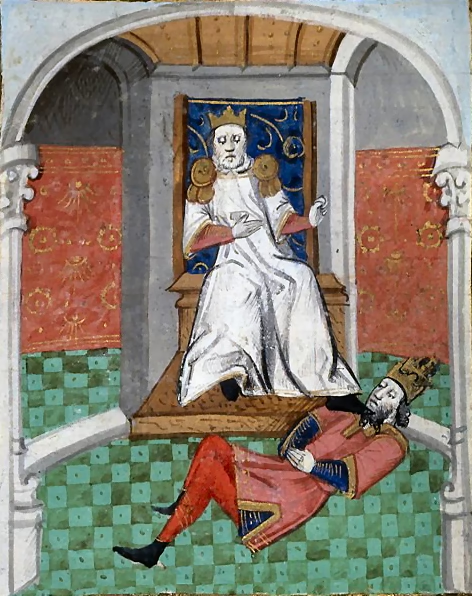
Governance: A Visionary Leader
While Alp Arslan is often celebrated for his military achievements, his contributions to governance were equally significant. Recognizing the diversity of his empire, he implemented policies that ensured stability and justice.
One of his key strategies was the appointment of competent administrators like Nizam al-Mulk, whose reforms transformed the Seljuk Empire into a well-organized state. Nizam al-Mulk’s treatise, Siyasatnama (The Book of Governance), became a foundational text on Islamic governance and administration.
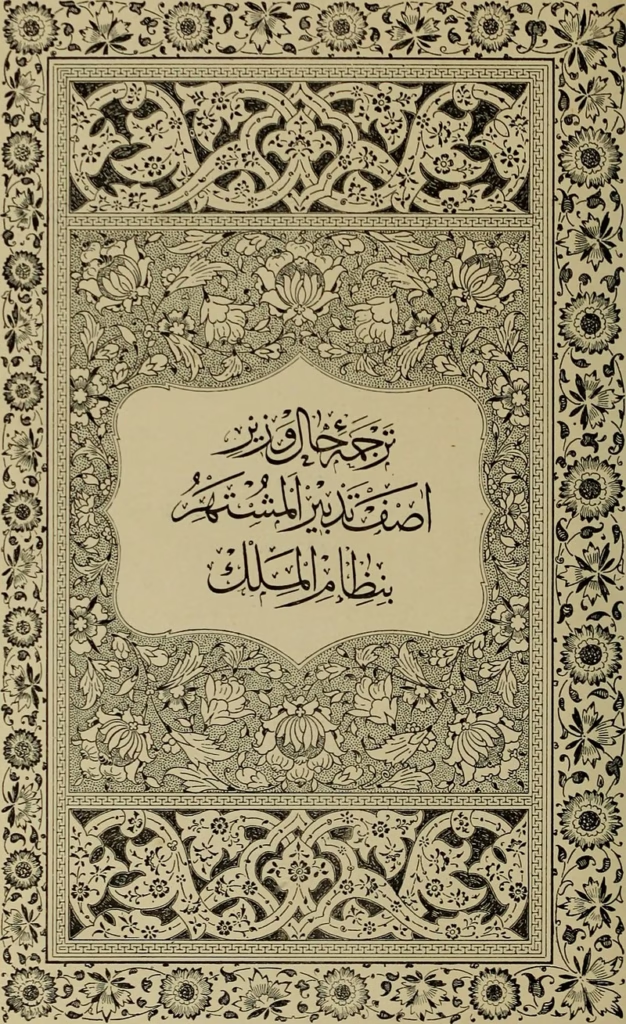
Alp Arslan also prioritized the welfare of his subjects, ensuring that both Muslims and non-Muslims were treated fairly. He upheld the Islamic principle of religious tolerance, allowing Christians, Jews, and other religious communities to live peacefully within the empire.
Religious Commitment and Legacy
Alp Arslan was a devoted Muslim who considered himself a protector of Islam. He worked to unite the Muslim world under Sunni Islam and maintained strong ties with the Abbasid Caliphate in Baghdad. His military campaigns were often presented as efforts to defend and expand Islamic lands.
His victory at the Battle of Manzikert was seen as a major success for Islam over Christianity. However, Alp Arslan believed in justice and tolerance. His policies focused on coexistence rather than conflict, showing his commitment to fairness and religious harmony.
Tragic Death and Succession
Alp Arslan’s reign was tragically cut short in 1072. After his monumental victory at Manzikert, Sultan Alp Arslan set his sights on conquering Turkestan, the ancestral homeland of his forebears. As he marched with his army, he advanced to the Oxus River, but before crossing it, he needed to subdue several fortresses in the region. One of these was defended by Yusuf al-Kharezmi, a rebel leader who resisted for many days. When Yusuf finally surrendered, Alp Arslan promised to let him keep his land.
However, when Yusuf was brought before the sultan, Alp Arslan scolded him instead of praising his bravery. Angered by the insults, Yusuf suddenly attacked. Alp Arslan tried to defend himself with his bow but slipped, allowing Yusuf to stab him with a dagger. The guards immediately killed Yusuf, but the sultan’s wound was fatal. Four days later, on November 24, 1072, Alp Arslan died and was buried in Merv.
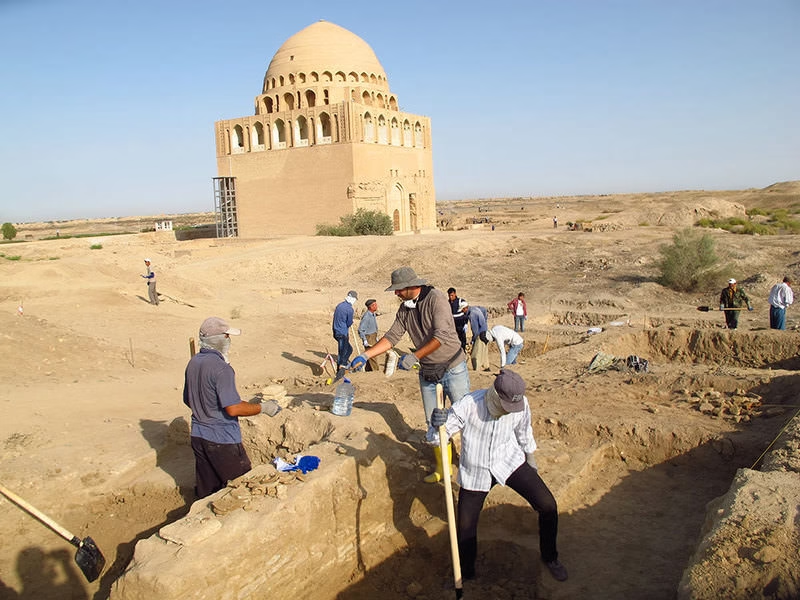
He passed away at the age of 43, marking the end of an important chapter in Seljuk history. His son, Malik-Shah, became the next sultan and continued his father’s work. Under Malik-Shah I, the Great Seljuk Empire grew even stronger, reaching its greatest power and influence.
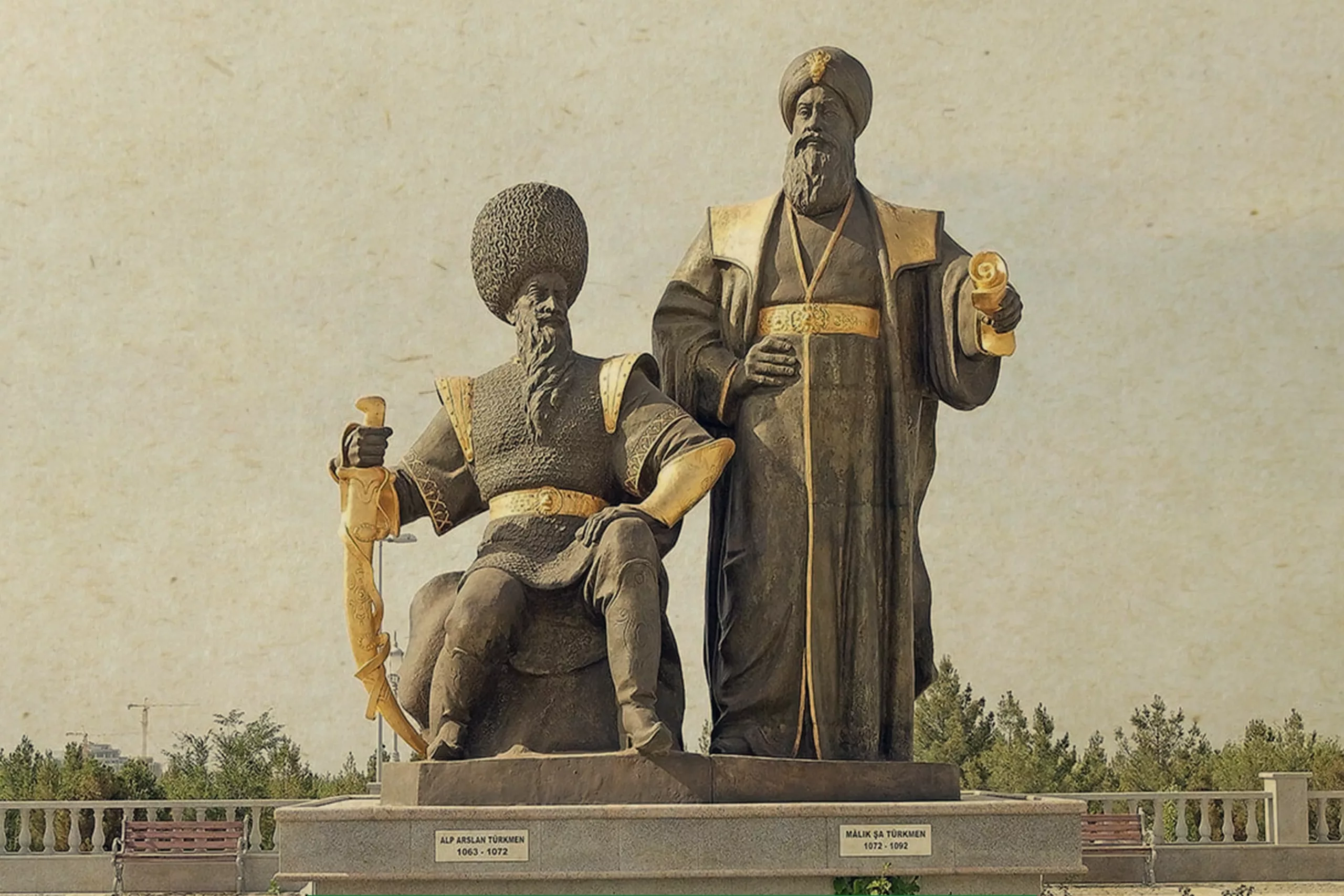
Alp Arslan’s Family
Sultan Alp Arslan had many wives and children, forming important political alliances. One of his wives, Safariyya Khatun, gave birth to his daughter, Sifri Khatun, who later married the Abbasid Caliph Al-Muqtadi in 1071–72. Safariyya Khatun passed away in Isfahan in 1073–74. Another wife, Akka Khatun, was previously married to Sultan Tughril and became Alp Arslan’s wife after Tughril’s death in 1063. Shah Khatun, the daughter of Qadir Khan Yusuf, was also one of his wives and had earlier been married to the Ghaznavid Sultan Mas’ud I.
Alp Arslan also married Ummu Hifchaq (also called Ummu Qipchaq), the daughter of King Kiurike I of Tashir. Later, he divorced her and arranged her marriage to his vizier, Nizam al-Mulk.
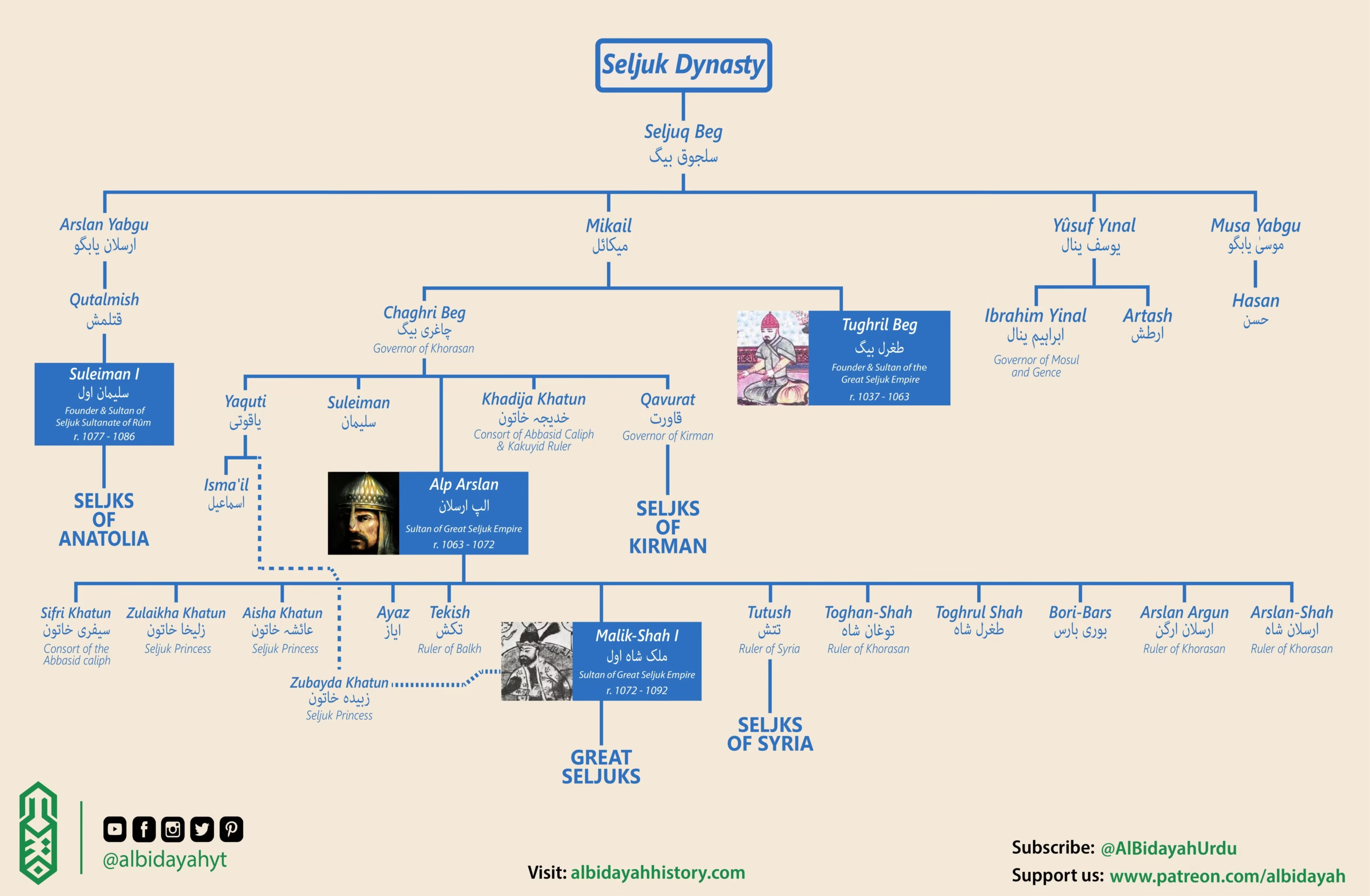
His sons included Malik-Shah I, Tutush I, Arslan Shah, Tekish, Toghan-Shah, Ayaz, and Buibars. Among his daughters, one married the son of Kurd Surkhab in 1068. Another, Zulaikha Khatun, married a man named Quraish’s son in 1086–87. Aisha Khatun married Shams al-Mulk Nasr, the son of Ibrahim Khan Tamghach. Another daughter, Sara Khatun, is also mentioned in historical records.
See Also: Sultan Alp Arslan Family Tree
Titles and Honors of Alp Arslan
Sultan Alp Arslan held many titles that showed his importance as a ruler, warrior, and defender of Islam. His most famous title, “Alp Arslan,” means “Heroic Lion” in Turkish, highlighting his bravery and strength in battle. He was also known as the “Second Sultan of the Seljuk Empire”, since he took over after his uncle, Tughril Beg, and helped expand and strengthen the empire. As a champion of Islam, he was called the “Sultan of Islam,” recognizing his role in protecting Muslim lands, especially after his victory at the Battle of Manzikert.
Another important title was “Protector of the Caliphate,” because of his strong alliance with the Abbasid Caliphate and his efforts to defend Islamic territories. These honors reflected his legacy as a powerful and respected leader.

